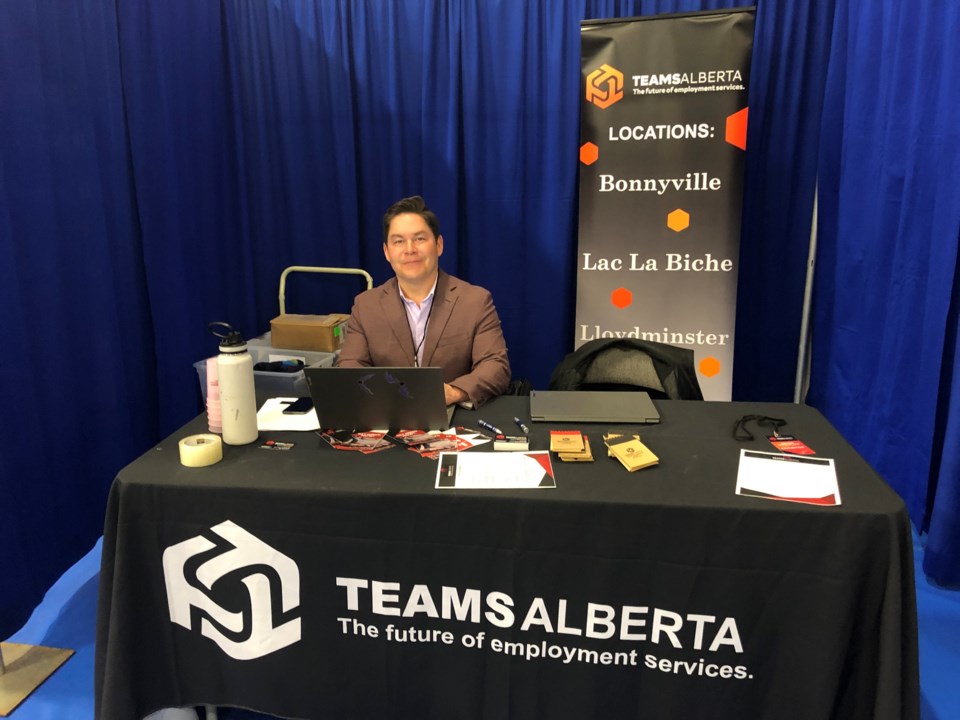BONNYVILLE – The Bonnyville Friendship Centre hosts TEAMS Alberta every second Wednesday of the month to offer free employment services to the community.
TEAMS stands for technology, employment, apprenticeship, and mobile service, and is a program offered through Tribal Chiefs Employment and Training Services Association.
Caddie Blood, Director of Operations for TEAMS, explains the service is for everyone regardless of their status, Indigenous or non-Indigenous.
“It's very fulfilling for me to be able to help somebody gain meaningful employment and overall achieve self-sufficiency,” says Blood. “I think that's what it's all about.”
TEAMS serves over 300 people annually, and Blood says one of the great qualities of the program is that it is mobile and accessible.
“Being mobile is right in our name. A luxury of going directly to the client is that it eliminates one of the biggest barriers we see our clients facing, and that's not having a driver's license or transportation. We’re able to attend our communities in-person throughout Treaty 6 and further to all the Métis settlements and surrounding friendship centres,” says Blood.
TEAMS has offices in Lac La Biche, Bonnyville, Loydminster, and Edmonton, with staff members designated to specific areas, offering people opportunities for continued support from a familiar face.
“We attend these communities consistently. Clients can meet us at one of our offices, or while we are in their area. We go to surrounding friendship centres and technical training institutions like Portage College. They can also connect to us virtually,” says Blood.
Blood has been working for the program for nearly a decade and says each clients’ needs are different.
"Maybe they’re looking for a job, or they have a job, and they need help getting a certain ticket. Sometimes they need a PPE, a pair of coveralls, or a hard hat, or a renewal of a first aid ticket, we can assist with that,” says Blood.
TEAMS assists with employment readiness, employment searches, apprenticeship support, job coaching, mentorship, and a few of the staff are also life skills facilitators.
“The end goal for us is that the client has meaningful employment and maintains it. It’s not just about getting a job, it’s about keeping it,” says Blood.
The service is for everyone at any stage, even if they are just beginning their search for employment and have no idea what they would like to do.
“Theres an initiative that we use called career cruising, and what that does is help people get a better understanding of where they’re headed in a career path. It's more or less geared towards helping somebody who's not quite sure what it is they want to do, or which path they want to take into their employment,” says Blood.
Blood is from a First Nations community north of Lac La Biche, and has experienced first-hand how difficult it can be to gain self-sufficiency. He carries that empathy over to his job and clients.
“I know what it’s like to grow up in poverty. I can relate to many of our clients on that level. I know what it takes to overcome barriers, to be faced with addictions, and to not have the type of support that my staff currently provides the public. That support is integral in helping somebody become self-sufficient,” says Blood.
Blood is grateful to be able to provide a service to the community that he never had access to.
“We know how dire it is, especially with the situation with the economy right now and the way things are going with inflation and the increased cost of living. I can't imagine being one of our clients, living on social assistance and trying to raise a family. It boggles the mind. So, that's why it's up to us to be that support for our clientele.”



